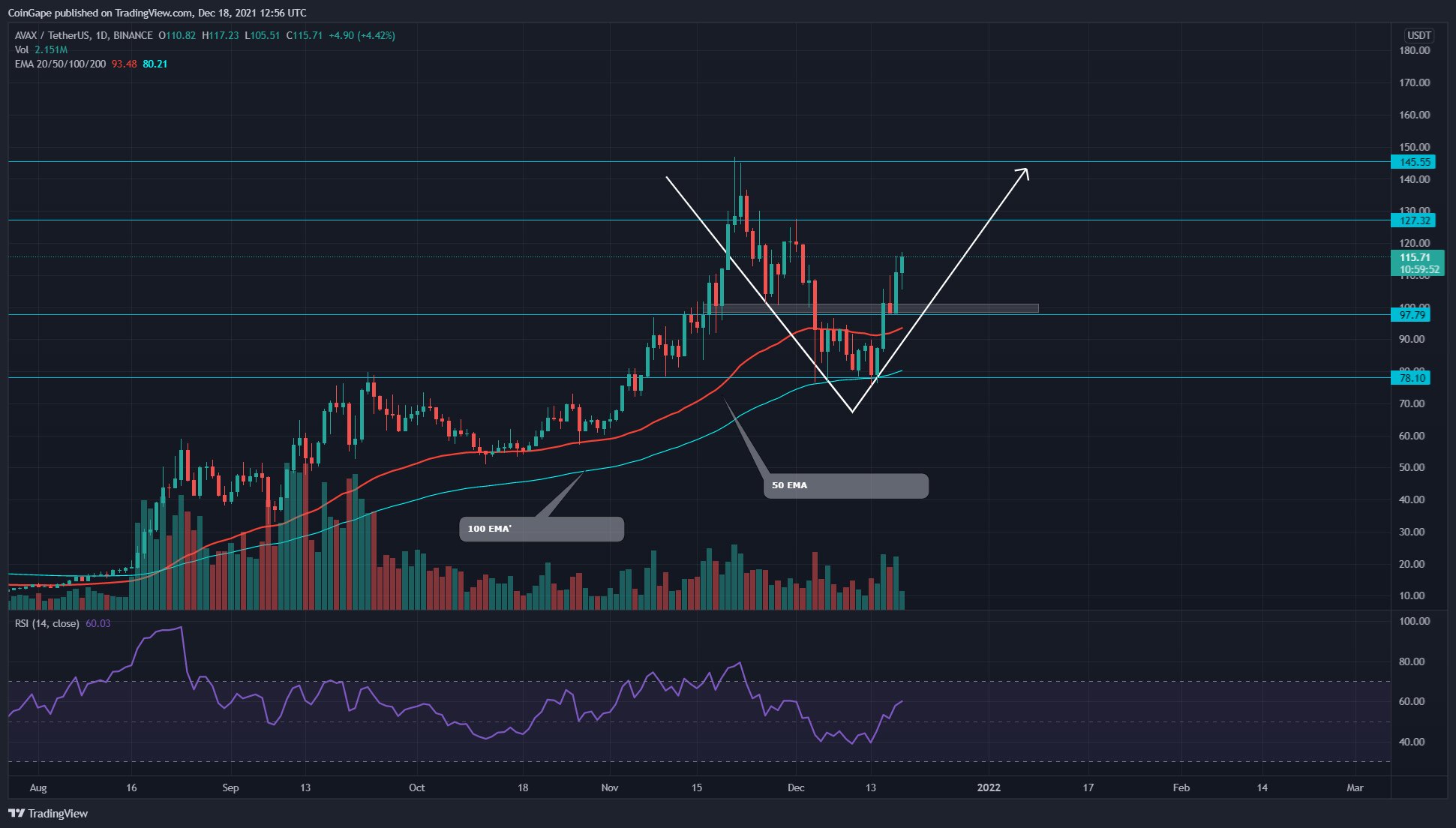Introduction
Doxxing is a term that has gained prominence in recent years, especially in the digital realm. It refers to the act of publicly revealing or disclosing the private and personal information of an individual without their consent. This information can include their real name, home address, phone number, email address, and even financial details.
In the world of cryptocurrency, where anonymity and privacy are highly valued, the act of doxxing can have severe consequences. It poses a threat to the security and safety of individuals within the crypto community, as well as their reputation and livelihood. Therefore, understanding what doxxing entails and how to protect against it is of utmost importance.
Doxxing can occur in various ways, ranging from malicious intent to acts of revenge or simply as a means to gain power and control over someone. It can be conducted by individuals, groups, or even entities with vested interests. The motive behind doxxing someone can vary, but the result is the same: exposing their private information to the public sphere.
One of the reasons why doxxing is particularly concerning in the crypto space is the nature of the industry itself. Cryptocurrencies are built upon the foundation of decentralization and privacy, allowing individuals to have control over their own financial transactions and personal data. However, when someone is doxxed, their privacy is compromised, leading to potential security risks and even financial losses.
Moreover, the crypto community is known for its passionate debates and disagreements. These disagreements can escalate to personal attacks and targeted doxxing campaigns. This not only affects the individuals involved but also hinders the growth and progress of the community as a whole.
It is essential to recognize the impact that doxxing can have on individuals within the crypto community. The exposure of personal information can lead to real-world consequences, including identity theft, harassment, threats, and even physical harm. This can have a lasting impact on an individual’s mental well-being and their ability to participate openly in the crypto space.
What is Doxxed
Doxxed, in the context of the digital world, refers to the act of exposing someone’s private and personal information to the public without their consent. This can include their real name, address, phone number, email, and even sensitive financial details.
The term “doxxing” originated from the word “docs”, which is a slang term for “documentation”. It gained prominence with the rise of online platforms and social media, where individuals can easily create and share content. Unfortunately, this also opened the door for acts of online harassment and invasion of privacy.
Doxxing can be done through various means. It could be as simple as someone mentioning the personal information of another individual in a public online discussion. It could also involve more malicious actions, such as hacking into someone’s accounts to extract their personal details or spreading false information with the intent to harm their reputation.
The consequences of being doxxed can be severe. It can lead to real-world harassment, stalking, identity theft, and even financial loss. Once personal information is made public, it becomes much easier for malicious individuals to exploit it for their gain.
Doxxing can occur in any online community or industry, but it is of particular concern in the crypto space. Cryptocurrencies are built on the principles of anonymity and privacy, providing individuals with control over their finances and personal data. Therefore, the exposure of personal information through doxxing directly contradicts these principles and puts individuals’ security at risk.
It is important to note that doxxing is not just limited to individuals. It can also target companies, organizations, or even entire communities. By revealing sensitive information about an entity, doxxing can lead to reputational damage, loss of trust, and undermine the foundation on which these entities operate.
In order to combat the negative effects of doxxing, it is crucial to understand its implications and take appropriate measures to protect oneself and others in the digital space. This includes being cautious about sharing personal information online, implementing strong security measures, and reporting any instances of doxxing to the appropriate authorities or platform administrators.
Why Doxxing is a Concern in the Crypto Space
Doxxing poses a significant concern in the crypto space due to the unique characteristics and values of the industry. Cryptocurrencies were designed to provide individuals with financial sovereignty, privacy, and security. However, when personal information is exposed through doxxing, it directly contradicts these principles and threatens the trust and integrity of the entire crypto community.
One primary reason why doxxing is a concern in the crypto space is the potential for financial harm. Cryptocurrency transactions can be traced on the blockchain, but with proper security measures in place, individuals can maintain a certain level of anonymity. However, when doxxed, this privacy is compromised, exposing individuals to the risk of targeted hacking attempts, theft, and fraud.
Another concern is the impact on personal security. The crypto space is known for its passionate debates, disagreements, and ideological differences. In this environment, doxxing can escalate disagreements to a dangerous level, leading to real-world harm. Individuals who are doxxed may become targets of harassment, stalking, or even physical violence, which can have devastating consequences on their well-being and safety.
Doxxing can not only harm individuals but also the entire crypto community. Reputations can be tarnished, and trust can be shattered when personal information is made public without consent. This can lead to a loss of faith in projects, exchanges, and the industry as a whole. Without trust, the growth and adoption of cryptocurrencies can be hindered, affecting the collaborative efforts to create a decentralized financial system.
Moreover, doxxing in the crypto space can also have legal implications. Exposing someone’s personal information without their consent may be a violation of privacy laws and can lead to legal consequences for the doxxer. However, given the anonymous nature of cryptocurrencies, it can be challenging to track down and hold accountable those responsible for the doxxing.
It is crucial for the crypto community to address the issue of doxxing and take measures to prevent and protect against it. This includes implementing strong security protocols, educating community members about the risks of doxxing, and fostering a culture of respect and privacy within the industry. By actively addressing this concern, the crypto space can remain a safe and inclusive environment for individuals to explore the benefits of decentralized finance.
How Doxxing Can Impact Individuals
Doxxing can have devastating consequences for individuals who fall victim to it, particularly in the crypto space. The exposure of personal and private information can lead to various negative impacts on their lives, both online and offline.
One significant impact of doxxing is the loss of privacy and security. When personal information is made public, it becomes accessible to anyone, including malicious actors who may exploit it for their gain. This can result in identity theft, hacking attempts, and financial fraud, putting individuals’ finances and sensitive data at risk.
Doxxing can also lead to harassment, both online and offline. Once personal information is publicly accessible, individuals may be subjected to relentless online abuse, threats, and intimidation. This can extend beyond the digital realm, with individuals becoming targets of stalking, unwanted visits, and even physical harm. The constant fear and stress caused by such harassment can significantly impact an individual’s mental well-being.
The reputational damage caused by doxxing is another significant impact that victims may face. Personal information made public without consent can be used to slander or defame individuals, tarnishing their professional and personal reputation. This can have long-lasting consequences, affecting their job prospects, relationships, and opportunities within the crypto community.
Furthermore, the exposure of personal information through doxxing can lead to targeted attacks and social isolation. Individuals who have been doxxed may become victims of online witch hunts, as others exploit their personal details to incite hate and division. This can result in the loss of valuable connections and supportive networks within the crypto space.
Financial implications are also a potential impact of doxxing. In addition to the direct risk of financial fraud, individuals who have been doxxed may face difficulties in conducting business or engaging in the crypto space. Their counterparts may become reluctant to enter into financial transactions, fearing the potential risks associated with the exposure of personal information.
Overall, the impact of doxxing on individuals is profound and multifaceted. It not only poses immediate threats to privacy and security but also affects mental well-being, reputation, relationships, and financial stability. It is crucial for individuals to take proactive steps to protect themselves from doxxing and for the crypto community as a whole to create an environment that fosters respect, privacy, and security for all its members.
Examples of Doxxing Incidents in the Crypto Community
The crypto community has unfortunately witnessed several instances of doxxing, where individuals and entities have been targeted and their personal information exposed without their consent. These incidents serve as a stark reminder of the risks and challenges faced within the crypto space.
One notable example is the case of John Doe, a prominent cryptocurrency influencer. During a heated online debate, an individual with malicious intent managed to uncover John’s real identity and publicly shared his personal information, including his home address and contact details. As a result, John experienced relentless online harassment and even received threats that extended into his offline life. The incident caused significant distress to John, impacting his mental well-being and ultimately leading him to step back from his involvement in the crypto community.
In another incident, a popular cryptocurrency exchange fell victim to a doxxing attack. An anonymous individual gained access to the exchange’s database and released sensitive customer information, including names, email addresses, and transaction histories. This breach not only compromised the privacy and security of the affected customers but also shook the confidence of the wider crypto community in the exchange’s ability to protect their personal data.
Furthermore, there have been instances where prominent blockchain projects have been doxxed, resulting in severe reputational damage. For instance, a leading blockchain company was targeted by a rival project that leaked internal company communications, exposing confidential information and casting doubt on the integrity of their operations. This incident not only eroded trust in the company but also undermined the credibility of the entire blockchain industry.
Additionally, individual investors have also fallen victim to doxxing attacks. In some cases, unscrupulous individuals have maliciously obtained investors’ personal information, such as wallet addresses or proof of holdings, and used it to carry out phishing attacks or targeted scams. This has resulted in significant financial losses and emotional distress for those affected.
These examples shed light on the pervasive nature of doxxing within the crypto community and highlight the importance of implementing robust security measures to safeguard personal information. It is crucial for individuals and organizations within the crypto space to remain vigilant, educate themselves about the risks of doxxing, and take proactive steps to protect their privacy and security.
Measures to Protect Against Doxxing
Protecting oneself against doxxing is crucial in preserving privacy and security in the crypto space. While it is impossible to completely eliminate the risk of being doxxed, there are measures individuals can take to mitigate the likelihood and potential impact of such incidents.
The first and most important step is to maintain strong online security practices. This includes using unique and complex passwords for all online accounts, enabling two-factor authentication, and regularly updating software and applications. It is also essential to be cautious about sharing personal information online and avoid clicking on suspicious links or downloading files from unknown sources.
Another effective measure is to separate personal and professional identities online. By creating distinct personas for different aspects of life, individuals can limit the exposure of personal information. Using pseudonyms or screen names instead of real names can help prevent the easy identification of individuals.
Privacy settings and controls on social media and other online platforms should be thoroughly reviewed and customized. Limiting the access and visibility of personal information to trusted contacts can significantly reduce the risk of unwanted exposure. It is advisable to regularly review privacy settings and be mindful of what information is shared publicly.
When participating in online discussions or forums, it is important to be cautious about the information shared and to maintain a level of anonymity. Avoid disclosing personal details that could potentially be used to identify or locate an individual. It is also essential to be mindful of one’s language and actions, as heated debates can sometimes escalate to doxxing incidents.
Implementing strong encryption protocols for online communications can also enhance privacy and security. Encrypted messaging apps and virtual private networks (VPNs) can help safeguard sensitive conversations and transactions from prying eyes.
Additionally, cultivating a supportive and respectful community culture is crucial in combatting doxxing. By promoting a zero-tolerance policy for harassment and doxxing within the crypto space, individuals and organizations can create an environment that values privacy, security, and inclusive participation. Encouraging open dialogue and education about the risks of doxxing can further empower individuals to protect themselves and their peers.
In the event of a doxxing incident, it is important to take immediate action. This includes reporting the incident to the relevant platform authorities, contacting local law enforcement if necessary, and seeking support from trusted members of the community. It is crucial to document any evidence of harassment or threats for future reference.
While doxxing is an unfortunate reality in the digital world, individuals can take proactive measures to mitigate its risks. By remaining vigilant, practicing good online security habits, and fostering a culture of respect and privacy, individuals within the crypto community can safeguard their personal information and contribute to a safer and more secure environment for all.
Conclusion
Doxxing is a serious concern in the crypto space, where privacy, security, and trust are paramount. The act of exposing someone’s personal information without their consent can have severe consequences for individuals and the overall community. It threatens financial security, personal safety, and reputation, hindering the growth and progress of the crypto industry.
Throughout this article, we have discussed the definition of doxxing, its implications, and examples of incidents within the crypto community. We have highlighted the importance of protecting personal information, implementing strong security measures, and fostering a culture of respect and privacy within the industry.
As individuals, it is important to be vigilant and proactive in safeguarding our personal information. By practicing good online security habits, such as using complex passwords, enabling two-factor authentication, and being cautious about sharing personal information, we can minimize the risk of being doxxed.
Additionally, creating separate online identities, reviewing privacy settings, and being mindful of our language and actions in online discussions can further minimize the likelihood of being targeted. By taking these measures, we can better protect ourselves and limit the potential impact of doxxing incidents.
Furthermore, fostering a community culture that values privacy, security, and respect is crucial. By advocating for zero-tolerance towards doxxing and promoting education about its risks, we can create an environment where all individuals feel safe, included, and supported.
In conclusion, doxxing is a serious threat that should not be taken lightly in the crypto space. By remaining proactive, informed, and vigilant, we can mitigate the risks associated with doxxing and contribute to a safer and more secure environment for all participants in the crypto community.

























